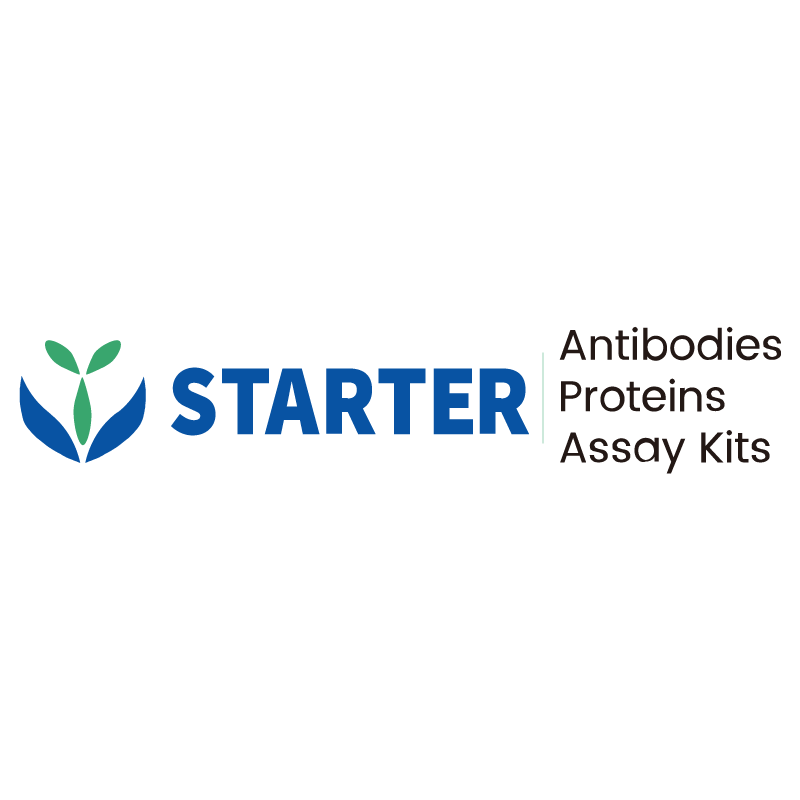WB result of DPP4 Recombinant Rabbit mAb
Primary antibody: DPP4 Recombinant Rabbit mAb at 1/1000 dilution
Lane 1: SW480 whole cell lysate 20 µg
Lane 2: Caco-2 whole cell lysate 20 µg
Lane 3: LoVo whole cell lysate 20 µg
Lane 4: HT-29 whole cell lysate 20 µg
Negative control: SW480 whole cell lysate
Secondary antibody: Goat Anti-rabbit IgG, (H+L), HRP conjugated at 1/10000 dilution
Predicted MW: 88 kDa
Observed MW: 90, 120 kDa
Product Details
Product Details
Product Specification
| Host | Rabbit |
| Antigen | DPP4 |
| Synonyms | Dipeptidyl peptidase 4; ADABP; Adenosine deaminase complexing protein 2 (ADCP-2); Dipeptidyl peptidase IV (DPP IV); T-cell activation antigen CD26; TP103; CD26; ADCP2 |
| Immunogen | Synthetic Peptide |
| Location | Cell membrane, Cell projection |
| Accession | P27487 |
| Clone Number | S-1631-130 |
| Antibody Type | Recombinant mAb |
| Isotype | IgG |
| Application | WB, IHC-P |
| Reactivity | Hu |
| Positive Sample | Caco-2, LoVo, HT-29 |
| Purification | Protein A |
| Concentration | 0.5 mg/ml |
| Conjugation | Unconjugated |
| Physical Appearance | Liquid |
| Storage Buffer | PBS, 40% Glycerol, 0.05% BSA, 0.03% Proclin 300 |
| Stability & Storage | 12 months from date of receipt / reconstitution, -20 °C as supplied |
Dilution
| application | dilution | species |
| WB | 1:1000 | Hu |
| IHC-P | 1:1000 | Hu |
Background
Dipeptidyl peptidase 4 (DPP4), also known as CD26, is a multifunctional serine protease widely expressed on the surface of various cells, including epithelial, endothelial, immune, and pancreatic cells. It is a type II transmembrane glycoprotein that can also exist in a soluble form in body fluids. DPP4 plays a crucial role in regulating the bioactivity of numerous peptides by cleaving N-terminal dipeptides, particularly those with proline or alanine in the penultimate position. This enzyme is best known for its involvement in glucose homeostasis through the degradation of incretin hormones like glucagon-like peptide-1 (GLP-1) and glucose-dependent insulinotropic polypeptide (GIP), which are essential for postprandial insulin secretion. Inhibition of DPP4 has thus become a therapeutic target for type 2 diabetes, with DPP4 inhibitors being widely used as antihyperglycemic agents. Beyond glucose metabolism, DPP4 is implicated in various physiological and pathological processes, such as inflammation, immune function, and cancer progression. Additionally, elevated levels of circulating DPP4 have been associated with obesity and cardiovascular diseases, suggesting its potential role in linking metabolic disorders and vascular dysfunction.
Picture
Picture
Western Blot
Immunohistochemistry
IHC shows positive staining in paraffin-embedded human kidney. Anti-DPP4 antibody was used at 1/1000 dilution, followed by a HRP Polymer for Mouse & Rabbit IgG (ready to use). Counterstained with hematoxylin. Heat mediated antigen retrieval with Tris/EDTA buffer pH9.0 was performed before commencing with IHC staining protocol.
IHC shows positive staining in paraffin-embedded human liver. Anti-DPP4 antibody was used at 1/1000 dilution, followed by a HRP Polymer for Mouse & Rabbit IgG (ready to use). Counterstained with hematoxylin. Heat mediated antigen retrieval with Tris/EDTA buffer pH9.0 was performed before commencing with IHC staining protocol.
IHC shows positive staining in paraffin-embedded human lung adenocarcinoma. Anti-DPP4 antibody was used at 1/1000 dilution, followed by a HRP Polymer for Mouse & Rabbit IgG (ready to use). Counterstained with hematoxylin. Heat mediated antigen retrieval with Tris/EDTA buffer pH9.0 was performed before commencing with IHC staining protocol.
IHC shows positive staining in paraffin-embedded human thyroid cancer. Anti-DPP4 antibody was used at 1/1000 dilution, followed by a HRP Polymer for Mouse & Rabbit IgG (ready to use). Counterstained with hematoxylin. Heat mediated antigen retrieval with Tris/EDTA buffer pH9.0 was performed before commencing with IHC staining protocol.


